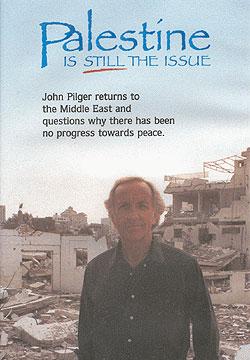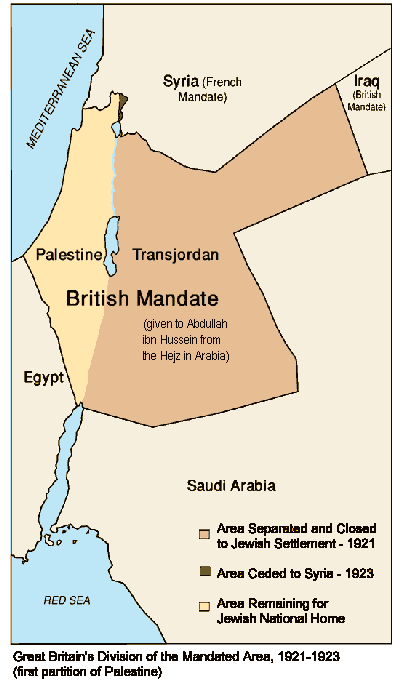
Palestine is Still the Issue
Written and Presented by John Pilger
English
53 minutes
Australian-born, London-based journalist and filmmaker John Pilger does not pretend to deliver an objective view of his subject matter. In fact, he scoffs at the whole notion of journalistic impartiality. “Impartiality and objectivity now mean the establishment point of view…” he declared derisively in a 2002 interview with the Progressive. Those journalists who claim to be objective, according to Pilger, only “channel the official truth,” and thereby “simply cipher and transmit lies.” He sees himself, by contrast, as an anti-establishment crusader and has acknowledged that if he were American, he’d be accused of advocacy journalism (Independent, March 23, 1998).
One of Pilger’s more notorious advocacy campaigns — a 1982 sensationalist exposé for the Daily Mirror about child slavery in Thailand — resulted in accusations that he fabricated the identity of a young girl sold into slavery by her parents, in order to strengthen his conclusions. Pilger claimed to have been duped by his Thai intermediary, but the incident prompted essayist Auberon Waugh to coin the verb “to pilger” which first appeared in the 1991 edition Oxford English Dictionary of New Words. (It was removed in 1994 after Pilger protested.) “Pilgering” has been defined by various writers as conducting journalism in a manner supposedly characteristic of John Pilger, or, more specifically, as presenting information in a sensationalist manner to support a foregone conclusion; using emotive language to make a false political point; treating a subject emotionally with generous disregard for inconvenient detail; or making a pompous judgement on wrong premises.
Targets of Pilger’s self-righteous anger are frequently “pilgered” in the journalist’s opinion columns, books and documentaries, often with emotive language and Nazi imagery. He labels the U.S. “the world’s leading rogue state;” and accuses Israel of conducting a “bloody and illegal rampage through Palestine,” likening its anti-terrorist incursions into Palestinian territories to “Nazi Germany’s invasion of Poland.” He brands Israeli Prime Minister Ariel Sharon a “war criminal,”compares U.S. President Bush to Hitler, and terms the American elite “the Third Reich of our times.”
In Pilger’s world, events are seen through a lens in which America and Israel are foremost villains. Thus Pilger responded to the 9/11 terrorist attacks against America with an op-ed blaming his usual villains. He wrote:
If the attacks on America have their source in the Islamic world, who can really be surprised?…
…The attacks on Tuesday come at the end of a long history of betrayal of the Islamic and Arab peoples: the collapse of the Ottoman Empire, the foundation of the state of Israel, four Arab-Israeli wars and 34 years of Israel’s brutal occupation of an Arab nation…
…It is only a few years ago that the Islamic fundamentalist groups, willing to blow themselves up in Israel and New York, were formed, and only after Israel and the US had rejected outright the hope of a Palestinian state, and justice for a people scarred by imperialism. Their distant voices of rage are now heard; the daily horrors in faraway brutalised places have at last come home.” (The Herald [Glasgow], September 13, 2001).
This view of the world dominates Pilger’s 2002 film, “Palestine is Still the Issue,” sequel to his 1977 documentary by the same name. Those familiar with Pilger’s work will recognize it as more of the same bitter diatribe. Presenting himself as a beleaguered but defiant critic of Israel and champion of the Palestinians, Pilger devotes his film to villifying Israel as a terrorist state with the help of a roster of anti-Israel Israelis who have made careers of publicly speaking out against their country.
|
|
|
A Palestinian farmer demonstrates his large yield of tomato plants after the introduction of new irrigation techniques by the UN Development Programme (UNDP). According to the UNDP, the Palestinian community’s poor water resource management practices of the past have allowed potentially good agricultural land in Wadi Gaza to go to waste. (UNDP Choices Magazine) |
Pilger further turns truth on its head by presenting the 1948 Israeli-Arab war as a direct consequence of Israeli aggression. He narrates in a voice-over:
“In 1948 when the State of Israel was founded, the Arab world revolted as Palestinians were expelled from their homes and force to flee in a blitz of fear and terror.”
Not only was the war initiated by five neighboring Arab countries whose armies invaded the nascent State of Israel, but the vast majority of Palestinian refugees were not expelled. They fled, many times despite the urgings of their Jewish neighbors to stay. For example, those fleeing Haifa accounted for one-tenth of the Palestinian refugees and were typical of the majority. Historian Efraim Karsh described the circumstances of their departure from Haifa:
..in Haifa, one of the largest and most dramatic locales of the Palestinian exodus, not only had half the Arab community fled the city before the final battle was joined, but another 5,000 – 15,000 apparently left voluntarily during the fighting while the rest, some 15,000 – 25,000 souls, were ordered or bullied into leaving against their wishes, almost certainly on the instructions of the Arab Higher Committee. The crime was exclusively of Arab making. There was no Jewish grand design to force this departure, nor was there a psychological “blitz.” To the contrary, both the Haifa Jewish leadership and the Hagana went to great lengths to convince the Arabs to stay.” (Commentary, July-August, 2000)
The filmmaker suggests, as well, that the 1967 war was a land grab, couched as a self-defensive measure. He states:
“In 1967, Palestinians once again fled their homes when Israel occupied the remaining 22% of Palestine, describing this as an act of self-defense.”
Ignored entirely are the internationally recognized precipitants of the 1967 war– namely, the Egyptian-ordered withdrawal of the UN Emergency Force; the complete Egyptian naval blockade of Eilat, an act of war under international law; the virulent rhetoric calling for the destruction of Israel issuing from Cairo; Arab mobilization of forces, including the massing of 1000 tanks and 100,000 troops near Israel’s border; Jordanian attack on Jerusalem, and so on.
Manipulating the words of Israel’s late leaders, Pilger presents a distorted view of Zionist intentions and actions. He falsely claims that former leader Menachem Begin considered a massacre to be a splendid act of conquest and misrepresents a quote Moshe Dayan supposedly made upon his retirement. While these pronouncements, as quoted by Pilger, appear on several Marxist and anti-Israel Web sites, they are uncorroborated and indeed, contradicted elsewhere. According to Pilger, Dayan said that “Jewish places were built in the place of Arab villages and there is not one single place in the country that did not have a former Arab population.” Had Pilger bothered to research the original quote, however, he would have discovered that it was made long before Dayan’s retirement, to a group of Technion University students on March 19, 1969, and included the key phrase “…we purchased the land from Arabs and set up Jewish villages where there had once been Arab villages…” But Pilger apparently prefers to depend on recycled material — whether or not it is presented in context or supported by historical fact — as long as it paints Israel as villain.
In Pilgerspeak, Palestinian suicide bombings targeting Israeli civilians are “expressions of despair by powerless people against an oppressor armed with modern weapons;” while Israel’s counter-terrorism military operations are “an attack on civilian life.” Israel’s security fence is “a Berlin wall,” and Israeli settlements are “armed colonies” that “dominate and intimidate Palestinians,” and are “illegal under international law.” (In fact, ownership of the land and the legality of Jewish settlements are disputed, but there is no international law that prohibits Israel from building settlements in the West Bank.)
Much of the film consists of Palestinians accusing Israel of a wide variety of misdeeds — from cultural vandalism to causing the death of a newborn by refusing a pregnant mother entrance through a checkpoint to routine, systematic terrorism. Pilger guides the Palestinians through their stories, asking leading questions, and rephrasing their words for emphasis. No Israeli or IDF spokesman is interviewed to confirm, deny or provide any other perspective on the accusations. Instead Pilger rounds up Israeli spokespeople — Ilan Pappe, Yishai Rosen-Zvi, and Rami Elhanan — who represent the far fringe of Israeli society.
|
|
|
|
|
Ilan Pappe expresses support for imposing international sanctions on Israel. |
Rami Elahanan blames Israel for creating Palestinian suicide bombers. |
Ilan Pappe expresses his support for the dismantlement of Israel as a Jewish state and the imposition of international sanctions upon his country. Yishai Rosen-Zvi is one of the few identifiably Orthodox, skull-cap wearing Israeli draft resisters, itself a marginal group. And Rami Elhanan belongs to the fringe group (founded by Yitzchak Frankenthal and funded largely by the European Union) of bereaved parents who decry Israeli government policy and blame their tragedies not on the perpetrators of terrorist attacks, but on Israel for turning Palestinians into terrorists. In the film, Elhanan suggests that the Palestinian suicide bomber who killed his daughter was as much a victim as was she. “The boy whose mother was humiliated in the morning at the checkpoint will commit sui
cide in the evening,” he declares in the film, demanding that Israel acknowledge its guilt. Pilger endorses these Israelis as “a group of courageous Israelis united [with Palestinians] in the oldest human struggle — to be free,” and interviews them extensively.
Israelis who aren’t in line with the filmmaker are granted far less time to present their perspectives and are little more than foils for Pilger’s accusations. For example, a brief (5 minute) segment on Pilger’s visit to a settlement includes two Israelis responding to his provocative questions, and is interspersed with Pilger’s own commentary about supposed Israeli state terrorism and apartheid policies, as well as sarcastic comments about the motivation of settlers. The only high-ranking Israeli included is former Ambassador Dore Gold whom Pilger challenges on what he asserts is Israel’s supposed practice of terrorism. The journalist uses an unsubstantiated, sensationalist anecdote to make his point. Providing no names, locations, or dates, Pilger recounts as an example of terrorism an Israeli sniper who supposedly targeted an elderly, cane-bearing, Palestinian woman on her way to receive chemotherapy. When Gold replies he has never heard of such an incident and expresses skepticism about Israeli soldiers deliberately targeting unarmed civilians, Pilger asserts bombastically: “That is what I just described. It did happen.”
Presenting unsubstantiated and far-fetched allegations as self-evident truths is a tactic Pilger uses repeatedly in this film. For example, at one point, Pilger divulges that “there is now documented evidence that Palestinians had made an extraordinary offer to the Israelis by conceding even more of their land but this was not reported.” Who made the offer? Where and when was it made? What exactly did the Palestinians concede? Why was it not reported? Pilger does not elaborate.
Given the severely skewed and overtly partisan nature of the film, it is no surprise that Britain’s ITV which commissioned and aired the documentary, was inundated with complaints, including a protest by Michael Green, chairman of ITV’s parent company, Carleton Communications. Green condemned the film as “one-sided, factually incorrect and historically inaccurate.” Pilger, in response, launched a scathing attack on Mr. Green and a campaign to present himself as victim of a pro-Israel lobby trying to muzzle him because he “dared to tell the truth.”
Britain’s Independent Television Commission ( ITC ) rejected complaints against Pilger’s film, “Palestine is Still the Issue,” on the basis of the fact that Israelis, as well as Palestinians were interviewed. It was on the basis of this ruling and Pilger’s vocal accusations of intimidation by a lobby group that some American PBS affiliates have recently begun to air the film. However, it is noteworthy that the ITC’s criteria for “objectivity” and “impartiality” are very different than American standards. The ITC acknowledged in its ruling that it was not “a tribunal of fact” and that:
While the requirement of due impartiality applies to all areas of controversy covered by the Broadcasting Act, it does not “require absolute neutrality on every issue or detachment from fundamental democratic principles.” It does not mean that “balance” is required in any simple mathematical sense or that equal time must be given to each opposing point of view…
To be sure, Pilger has his admirers. They naively celebrate his self-styled image as a maverick journalist combating the so-called Establishment to educate the public. Pilger has received an Ethnic Multiculturalism Media Award, a Sophie Award for “point[ing] to alternatives to the present development,” and a Columbia International Film and Video Festival (Chris) Award, lauded by the judges for “going the extra mile to bring us the alternative truth.”
As long as the voices of those who value “the alternative truth” are louder than those who value truth itself, Pilger’s dangerous propaganda will continue to thrive.




